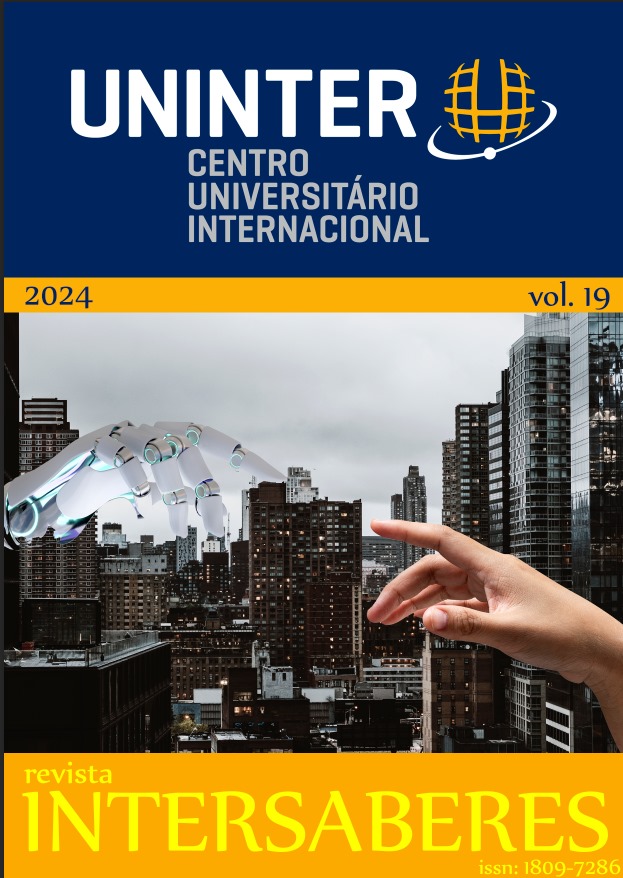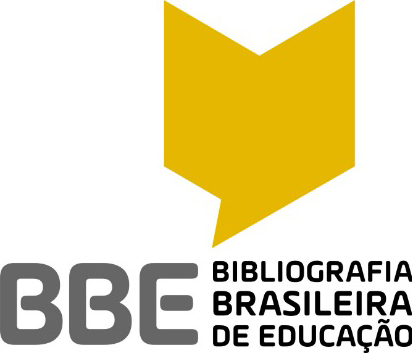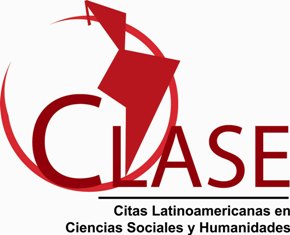Conectando culturas com Inteligência Artificial Generativa
Palavras-chave:
Adaptação Cultural, Estudantes Estrangeiros, Inteligência Artificial Generativa, ChatGPT, Educação InternacionalResumo
Este estudo visa explorar e investigar o potencial da inteligência artificial (IA) generativa, especialmente do ChatGPT, no auxílio a estudantes estrangeiros em sua adaptação cultural em um novo país. A pesquisa envolveu imigrantes da Venezuela e do Haiti em um curso profissionalizante de curta duração no ano de 2023, na cidade de Porto Alegre. Os resultados destacam o papel importante do ChatGPT ao fornecer suporte e informações para a adaptação cultural de estudantes estrangeiros e integrá-los mediante as tecnologias generativas. Releva destacar que a IA complementa, em vez de substituir, o suporte e o acolhimento humano, ampliando oportunidades de aprendizagem e enriquecendo a experiência dos estudantes estrangeiros em sua adaptação cultural.
Downloads
Referências
A NEW AI language model generates poetry and prose. The Economist, 6 Aug. 2020. Disponível em: https://www.economist.com/science-and-technology/2020/08/06/a-new-ai-language-model-generates-poetry-and-prose. Acesso em: 26 mar. 2024.
ALTMAN, S. The GPT-3 hype is way too much. It’s impressive (thanks for the nice compliments!) but it still has serious weaknesses and sometimes makes very silly mistakes. AI is going to change the world, but GPT-3 is just a very early glimpse. We have a lot still to figure out. San Francisco, CA, 19 July 2020. Twitter: @sama. Disponível em: https://twitter.com/sama/status/1284922296348454913. Acesso em: 27 mar. 2024.
ANSON, C.; STRAUME, I. Amazement and Trepidation: Implications of AI-based Natural Language Production for the Teaching of Writing. Journal of Academic Writing, [s. l.],
v. 12, n. 1, p. 1-9, Winter 2022. DOI: doi.org/10.18552/joaw.v12i1.820. Disponível em: publications.coventry.ac.uk/index.php/joaw/article/view/820/954. Acesso em:
mar. 2024.
ANYOHA, R. The History of Artificial Intelligence. SITN HARVARD, 28 Aug. 2017. Disponível em: sitn.hms.harvard.edu/flash/2017/history-artificial-intelligence. Acesso em: 26 mar. 2024.
BAILY, M. N.; BRYNJOLFSSON, E.; KORINEK, A. Machines of mind: The case for an AI-powered productivity boom. Brookings, 10 May 2023. Disponível em: https://www.brookings.edu/articles/machines-of-mind-the-case-for-an-ai-powered-productivity-boom. Acesso em: 26 mar. 2024.
BALTAR, R.; BALTAR, C. S. Professores serão substituídos pela inteligência artificial? Authorea, 1º fev. 2023. Disponível em: www.authorea.com/users/6000/articles/620516-professores-ser%C3%A3o-substitu%C3%ADdos-pela-intelig%C3%AAncia-artificial. Disponível em: d197for5662m48.cloudfront.net/documents/publicationstatus/126635/
preprint_pdf/fac5d074176bbe1fdceebbfc8bfe4297.pdf. Acesso em: 26 mar. 2024.
BROWN, T. et al. Language models are few-shot learners. arXiv:2005.14165v4, 2020. Disponível em: https://arxiv.org/abs/2005.14165. Acesso em: 26 mar. 2024.
BUILDING the backbone for innovation, speed, and thriving humanity. MIT Technology Review, 8 Feb. 2023. Disponível em: www.tecnologyreview.com/2023/02/08/1067126/building-the-backbone-for-innovation-speed-and-thriving-humanity. Acesso em: 26 mar. 2024.
CHEN, L.; CHEN, P.; LIN, Z. Artificial intelligence in education: A review. Ieee Access, v. 8, p. 75264-75278, 2020. DOI: https://doi.org/10.1109/ACCESS.2020.2988510. Disponível em: ieeexplore.ieee.org/stamp/stamp.jsp?tp=&arnumber=9069875. Acesso em: 26 mar. 2024.
COOPER, K. OpenAI GPT-3: Everything you need to know. Springboard, 2021. Disponível em: https://www.springboard.com/blog/data cience/machine-learning-gpt-3-open-ai. Acesso em: 27 mar. 2024.
FEIJÓ, R. N. A internacionalização da educação superior no Brasil: um estudo de caso de alunos estrangeiros do Programa de Pós-Graduação em Antropologia Social/UFRGS. 2013. 110 f. Dissertação (Mestrado em Educação) — Universidade Federal do Rio Grande do Sul, Porto Alegre, 2013. Disponível em: https://lume.ufrgs.br/handle/10183/72785. Acesso em: 26 mar. 2024.
FLORIDI, L.; CHIRIATTI, M. GPT-3: Its nature, scope, limits, and consequences. Minds and Machines, v. 30, p. 681-694, 2020. DOI: https://doi.org/10.1007/s11023-020-09548-1. Disponível em: https://link.springer.com/content/pdf/10.1007/s11023-020-09548-1.pdf. Acesso em: 26 mar. 2024.
GANTORI, S. Shifting Asia: how artificial intelligence will transform Asia. Suíça: UBS, 2017.
GIRARDI, J. F. Impactos psicológicos da imigração voluntária: a experiência de universitários imigrantes. Dissertação (Mestrado em Psicologia) — Universidade Federal de Santa Catarina, Florianópolis, 2015. Disponível em: repositorio.ufsc.br/xmlui/handle/123456789/169465. Acesso em: 20 out. 2023.
GIRARDI, J. F.; MARTINS-BORGES, L. Dimensões do sofrimento psíquico em estudantes universitários estrangeiros. Psico, Porto Alegre, v. 48, n. 4, p. 256-263, 2017. DOI: doi.org/10.15448/1980-8623.2017.4.26143. Disponível em: revistaseletronicas.pucrs.br/
ojs/index.php/revistapsico/article/view/26143/pdf. Acesso em: 26 mar. 2024.
GRANT, N.; METZ, C. A new chat bot is a ‘code red’ for Google’s search business. New York Times, Dec. 21, 2022.
GROSSMAN, G. We’re entering the AI twilight zone between narrow and general AI. Venture Beat, 3 Sept. 2020. Disponível em: https://venturebeat.com/ai/were-entering-the-ai-twilight-zone-between-narrow-and-general-ai/. Acesso em: 27 mar. 2024.
HEAVEN, W. D. OpenAI’s new language generator GPT-3 is shockingly good—and completely mindless. MIT Technology Review, 20 July 2020. Disponível em: https://www.technologyreview.com/2020/07/20/1005454/openai-machine-learning-language-generator-gpt-3-nlp/. Acesso em: 26 mar. 2024.
JIAO, W. et al. Is ChatGPT a good translator? A preliminary study. ArXiv preprint, arXiv:2301.08745, 2023.
KAUFMAN, D. Desmistificando a inteligência artificial. Belo Horizonte: Autêntica, 2022.
LAISNER, R. (Des) Caminhos da democracia na internacionalização da educação superior no Brasil. In: CONGRESO LATINOAMERICANO DE CIENCIA POLÍTICA (ALACIP), 10., 2019, Monterrey, México. Anais […]. Monterrey, México: Asociación Latinoamericana de Ciencia Política: Asociación Mexicana de Ciencia Política: Tecnológico de Monterrey, 2019. Disponível em: https://alacip.org/cong19/189-laisner-19.pdf. Acesso em: 26 mar. 2024.
LAURET, J. GPT-3: the first artificial general intelligence? Towards Data Science, 2020. Disponível em: https://towardsdatascience.com/gpt-3-the-first-artificial-general-intelligence-b8d9b38557a1. Acesso em: 26 mar. 2024.
LUCE, M. B.; FAGUNDES, C. V.; MEDIEL, O. G. Internacionalização da educação superior: a dimensão intercultural e o suporte institucional na avaliação da mobilidade acadêmica. Avaliação: Revista da Avaliação da Educação Superior, Campinas, Sorocaba, v. 21, p. 317-340, jul. 2016. DOI: https://doi.org/10.1590/S1414-40772016000200002. Disponível em: scielo.br/j/aval/a/FhyPkHjxyz78zYHZFLvJg6t/?format=pdf. Acesso em: 27 mar. 2024.
MANJOO, F. How do you know a human wrote this. The New York Times, 29 July 2020.
MARCUS, G.; DAVIS, E. GPT-3, Bloviator: OpenAI’s language generator has no idea what it’s talking about. MIT Technology Review, 22 Aug. 2020. Disponível em: www.technologyreview.com/2020/08/22/1007539/gpt3-openai-language-generator-artificial-intelligence-ai-opinion/. Acesso em: 26 mar. 2024.
MARQUES, F. O plágio encoberto em textos do ChatGPT. Revista Pesquisa FAPESP, São Paulo, ed. 326, abr. 2023. Disponível em: https://revistapesquisa.fapesp.br/o-plagio-encoberto-em-textos-do-chatgpt. Acesso em: 26 mar. 2024.
METZ, C. Inside OpenAI, Elon Musk’s wild plan to set Artificial intelligence free. Wired, p. 1-7, 27 Apr. 2016. Disponível em: https://www.wired.com/2016/04/openai-elon-musk-sam-altman-plan-to-set-artificial-intelligence-free/. Acesso em: 26 mar. 2024.
MURATI, M. In just 5 days since launch, ChatGPT has reached over 1M users. Thank you for your feedback to help us improve the platform! San Francisco, CA, 5 Dec. 2022. Twitter: @miramurati. Disponível em: https://twitter.com/miramurati/status/1599796191243669504. Acesso em: 26 mar. 2024.
NAZARI, N.; SHABBIR, M. S.; SETIAWAN, R. Application of Artificial Intelligence powered digital writing assistant in higher education: randomized controlled trial. Heliyon, v. 7, n. 5, May 2021. DOI: doi.org/10.1016/j.heliyon.2021.e07014. Disponível em: cell.com/action/showPdf?pii=S2405-8440%2821%2901117-8. Acesso em: 26 mar. 2024.
NISAR, S.; ASLAM, M. S. Is ChatGPT a Good Tool for T&CM Students in Studying Pharmacology? [Preprint], SSRN, 4324310, 2023. DOI: dx.doi.org/10.2139/ssrn.4324310. Disponível em: papers.ssrn.com/sol3/Delivery.cfm/SSRN_ID4324310_code3318886.pdf?abstractid=4324310&mirid=1&type=2. Acesso em: 26 mar. 2024.
PAGNAMENTA, R. Forget deepfakes–we should be very worried about AI-generated text. The Telegraph, Londres, 26 Aug. 2020. Disponível em: telegraph.co.uk/technology/2020/08/26/forget-deepfakes-ai-generated-text-should-worried. Acesso em: 26 mar. 2024.
PAVLIK, J. V. Collaborating with ChatGPT: Considering the implications of generative artificial intelligence for journalism and media education. Journalism & Mass Communication Educator, [s. l.], v. 78, n. 1, p. 84-93, 2023. DOI: https://doi.org/10.1177/1077695822114957.
PÉRICO, F. G.; GONÇALVES, R. B. Intercâmbio acadêmico: as dificuldades de adaptação e de readaptação. Educação e Pesquisa, São Paulo, v. 44, e182699, p. 1-21, 2018. DOI: https://doi.org/10.1590/S1678-4634201844182699. Disponível em: scielo.br/j/ep/a/ncP7zLgbPM48QqtbjLcYBpD/?format=pdf. Acesso em: 26 mar. 2024.
PERLIN, A. P. et al. Percepção e satisfação de estudantes estrangeiros em uma instituição de ensino pública. Desenvolve Revista de Gestão do Unilasalle, v. 7, n. 2, p. 37-51, 2018. DOI: doi.org/10.18316/desenv.v7i2.4540. Disponível em: revistas.unilasalle.edu.br/
index.php/desenvolve/article/view/4540/pdf. Acesso em: 26 mar. 2024.
PRZYŁĘCKI, P. International Students at the Medical University of Łódź: Adaptation Challenges and Culture Shock Experienced in a Foreign Country. Central and Eastern European Migration Review, Varsóvia, v. 7, n. 2, p. 209-232, June 2018. DOI: https://doi.org/10.17467/ceemr.2018.13.
RODRIGUES, O. S.; RODRIGUES, K. S. A inteligência artificial na educação: os desafios do ChatGPT. Texto Livre, Belo Horizonte, v. 16, e45997, p. 1-12, 2023. DOI: doi.org/10.1590/1983-3652.2023.45997. Disponível em: scielo.br/j/tl/a/
rxWn7YQbndZMYs9fpkxbVXv/?format=pdf. Acesso em: 27 mar. 2024.
RUDOLPH, J.; TAN, S.; TAN, S. ChatGPT: Bullshit spewer or the end of traditional assessments in higher education? Journal of Applied Learning and Teaching, v. 6, n. 1, 2023. DOI: https://doi.org/10.37074/jalt.2023.6.1.9. Disponível em: journals.sfu.ca/jalt/index.php/jalt/article/view/689/539. Acesso em: 26 mar. 2024.
SANTAELLA, L. A inteligência artificial é inteligente? São Paulo: Almedina, 2023.
SCUDILIO, J. Como a Inteligência Artificial está transformando os Negócios. Flai, 30 maio 2020.
SHARPLES, M. Automated essay writing: An AIED opinion. International journal of artificial intelligence in education, [s. l.], v. 32, n. 4, p. 1119-1126, 2022. DOI: doi.org/10.1007/s40593-022-00300-7. Disponível em: link.springer.com/content/pdf/10.1007/s40593-022-00300-7.pdf. Acesso em: 26 mar. 2024.
SHEPHERD, T. South Australian universities to allow use of artificial intelligence in assignments if disclosed. The Guardian, Londres, v. 24, 2023. Disponível em: https://www.theguardian.com/australia-news/2023/jan/21/south-australian-universities-to-allow-use-of-artificial-intelligence-in-assignments-if-disclosed. Acesso em: 26 mar. 2024.
SOSA, F.; ZUBIETA, E. La experiencia de migración y adaptación sociocultural: identidad, contacto y apoyo social en estudiantes universitarios migrantes. Psicogente, Barranquilla, v. 18, n. 33, p. 36-51, enero/jun. 2015. Disponível em: http://www.scielo.org.co/pdf/psico/v18n33/v18n33a04.pdf. Acesso em: 26 mar. 2024.
TASHIMA, J. N. Adaptação cultural de imigrantes brasileiros no Japão. 2018. 331 f. Tese (Doutorado em Psicologia Social, do Trabalho e das Organizações) — Universidade de Brasília, Brasília, 2018. Disponível em: http://icts.unb.br/jspui/handle/10482/31833. Acesso em: 26 mar. 2024.
TAVARES, L. A.; MEIRA, M. C.; AMARAL, S. F. Inteligência Artificial na Educação: Survey. Brazilian Journal of Development, São José dos Pinhais, v. 6, n. 7, p. 48699-48714, 2020. DOI: doi.org/10.34117/bjdv6n7-496. Disponível em: ojs.brazilianjournals.com.br/ojs/
index.php/BRJD/article/view/13539/11346. Acesso em: 26 mar. 2024.
THOMPSON, D. Breakthroughs of the year. The Atlantic, 8 Dec. 2022. Disponível em: www.theatlantic.com/newsletters/archive/2022/12/technology-medicine-law-ai-10-breakthroughs-2022/672390. Acesso em: 26 mar. 2024.
VIEIRA, A. L. F.; AMORIM, M. C. Z.; CUNHA, E. Proposta de avaliação da percepção dos impactos da inteligência artificial generativa na educação superior. In: SIMPÓSIO BRASILEIRO DE TECNOLOGIA DA INFORMAÇÃO E DA LINGUAGEM HUMANA, 14., 2023, Belo Horizonte. Anais […]. Belo Horizonte: Sociedade Brasileira de Computação, 2023.
p. 411-415. DOI: https://doi.org/10.5753/stil.2023.234640. Disponível em: sol.sbc.org.br/index.php/stil/article/view/25480/25301. Acesso em: 26 mar. 2024.
WARNER, J. Freaking out about ChatGPT—Part I. Inside Higher Ed, 5 Dec. 2022. Disponível em: https://www.insidehighered.com/blogs/just-visiting/freaking-out-about-chatgpt%E2%80%94part-i. Acesso em: 26 mar. 2024.
ZEMBRZUSKI, L. J.; SANTOS, C. M. R. C.; NIHEI, O. K. Adaptação de estudantes universitários estrangeiros no Brasil: revisão de escopo. Pleiade, [s. l.], v. 15, n. 33, p. 20-34, jul./dez. 2021. DOI: https://doi.org/10.32915/pleiade.v15i33.697. Disponível em: pleiade.uniamerica.br/index.php/pleiade/article/view/697/787. Acesso em: 27 mar. 2024.
ZHAI, X. ChatGPT user experience: Implications for education. [Pré-print], SSRN 4312418, 2022. Disponível em: https://papers.ssrn.com/sol3/Delivery.cfm/SSRN_ID4312418_code4937264.pdf?abstractid=4312418&mirid=1&type=2. Acesso em: 26 mar. 2024.
ZHAO, L. Academic dishonesty and its relations to peer cheating and culture: A meta-analysis of the perceived peer cheating effect. Educational Research Review, [s. l.], v. 36, 100455, 2022. DOI: https://doi.org/10.1016/j.edurev.2022.100455.
Publicado
Como Citar
Edição
Seção
Licença
Copyright (c) 2024 REVISTA INTERSABERES

Este trabalho está licenciado sob uma licença Creative Commons Attribution-NonCommercial-NoDerivatives 4.0 International License.
Os direitos autorais dos artigos publicados na Revista são de acordo com a licença CC-BY-ND - Creative Commons ( https://creativecommons.org/licenses/by-nd/4.0/legalcode)
Esta licença permite que outras pessoas reutilizem o trabalho para qualquer finalidade, inclusive comercialmente; no entanto, não pode ser compartilhado com outras pessoas de forma adaptada e o crédito deve ser fornecido ao autor.
Os direitos autorais dos artigos publicados na Revista são do autor, com os direitos de primeira publicação para a Revista
























